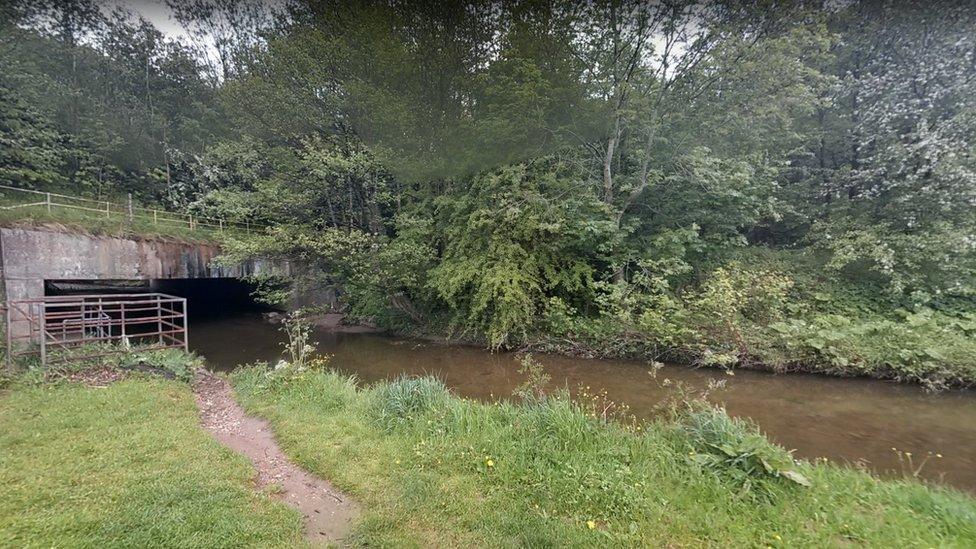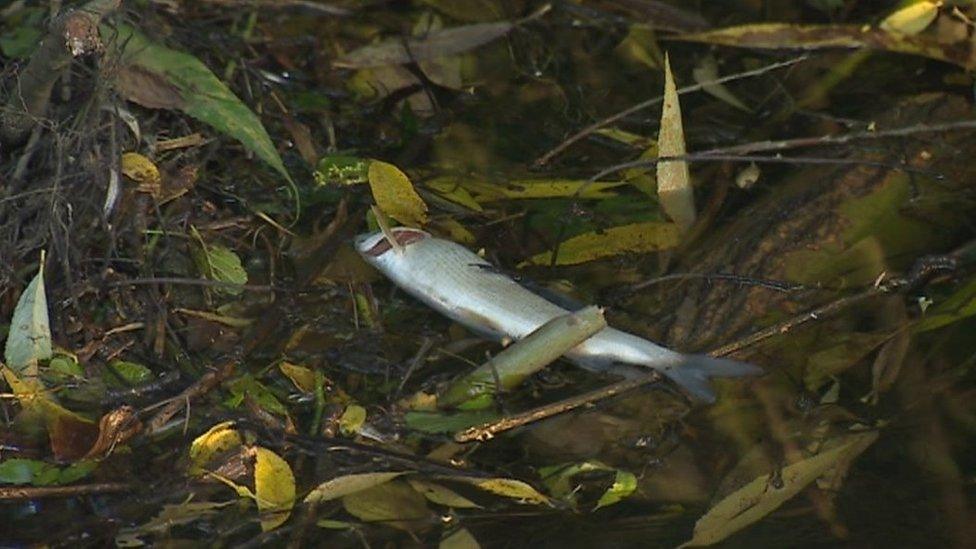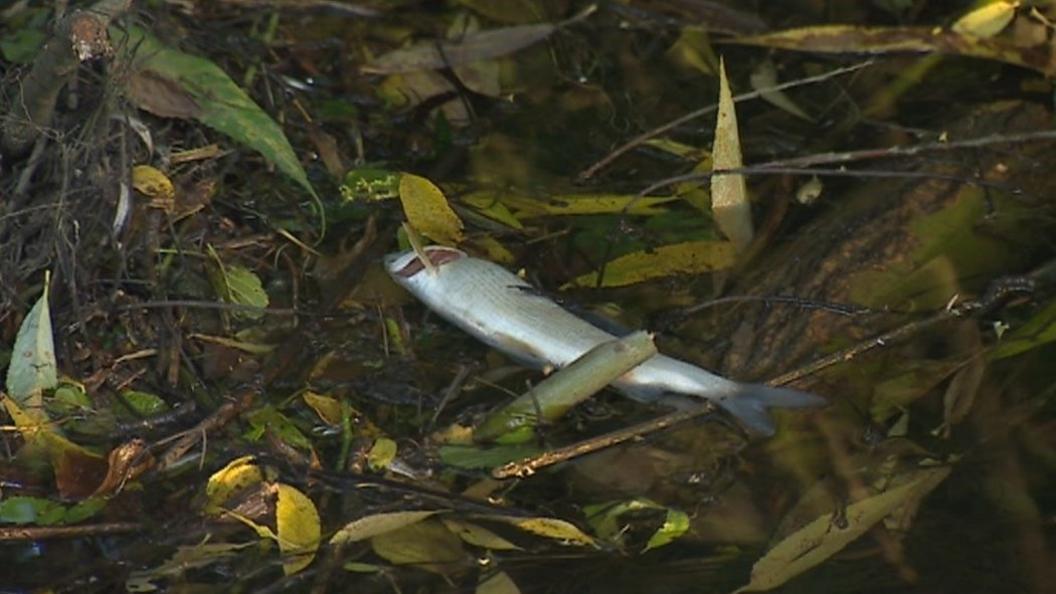Welsh Water: Snail removal led to pollution killing 3,000 fish in River Clywedog
- Published

A stretch of the River Clywedog was polluted
Welsh Water has been fined £180,000 after the removal of a snail colony led to "the largest fish-kill incident in north Wales for several years".
A Llandudno court heard up to 150,000 gallons (675,000 litres) of untreated sewage was discharged into the River Clywedog, Wrexham, in September 2018.
Storm tanks overflowed during an operation to clean out a chamber where a colony of snails had formed.
Welsh Water admitted three offences involving pollution.
Natural Resources Wales said 5.5 miles (9km) of the river was affected, killing more than 3,000 fish.
Distressed fish, including brown trout and salmon, died in front of environmental officers, the court was told.
A tributary of the River Dee, the Clywedog provides drinking water for more than two million people in north Wales and north-west England.
Richard Kimblin, defending, said there had been a "very substantive" recovery of fish numbers.

Thousands of fish died in the river, Natural Resources Wales said
The incident started when a large colony of snails built up at Five Fords wastewater treatment works and the decision was made to clean out a chamber.
The court heard a mistake was made and storm tanks had overflowed during the operation.
Mr Kimblin said Welsh Water was "industry leading" in terms of its environmental performance.
District judge Gwyn Jones imposed a £180,000 fine and the company was ordered to pay £25,800 costs.
The judge accepted that, for a company such as Welsh Water, "it's inevitable certain issues arise".
Watch as milk from a crashed tanker flows down the River Dulais
In a statement, Welsh Water said: "We take our responsibility for protecting the environment in our care seriously. But on this occasion we recognise we fell short and for this we are very sorry.
"The incident at our Five Fords wastewater treatment works occurred while we were carrying out emergency maintenance work which accidentally led to partially treated wastewater overflowing from one of our storage tanks for about one hour into the River Clywedog.
"Unfortunately, we were unaware this had occurred while undertaking the work. However, as soon as we realised we took immediate steps to try and minimise its impact."
- Published5 September 2018
